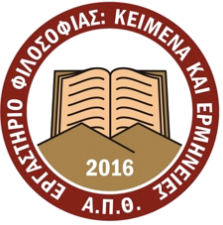Cross-Cultural Reflections on ‘Bodily Excellence’
Matthew Walker (Yale-NUS College, Singapore)
Abstract
In his popularizing discussion of happiness in Rhetoric I.5, Aristotle reviews various bodily conditions – including bodily health, beauty, strength, and so on – that he identifies as bodily excellences and as parts of happiness. Yet aside from this brief discussion, Aristotle has little to say about bodily excellence. Indeed, in Nicomachean Ethics I.13, Aristotle argues against including bodily excellence within the scope of ethics. Yet is Aristotle too quick to do so? I address this question by considering the reasons that Mengzi and Guanzi offer for adopting the inclusion thesis, which asserts that excellent bodily appearance and condition can fall within the scope of ethical concern. I also sketch potential Xunzian concerns about, and objections to, such a view. Against this background, I revisit Aristotle and identify tensions within Aristotle’s views about the status of bodily excellence. On these grounds, I conclude that Aristotle has reason, after all, to adopt some version of the inclusion thesis – if not a strong version of the sort that others accept, then at least a weak version.
Matthew D. Walker is Associate Professor of Humanities (Philosophy) at Yale-NUS College (Singapore), where he works principally on ancient Greek philosophy and comparative ethics. He is the author of Aristotle on the Uses of Contemplation (Cambridge University Press); “Aristotle’s Eudemus and the Propaedeutic Use of the Dialogue Form” (winner of the 2021 Journal of the History of Philosophy article prize); and other articles and chapters, including contributions to The Bloomsbury Research Handbook of Early Chinese Ethics and Political Philosophy; a Law and Literature special issue on “Law and Humanities in China”; and Virtue Ethics and Confucianism.

